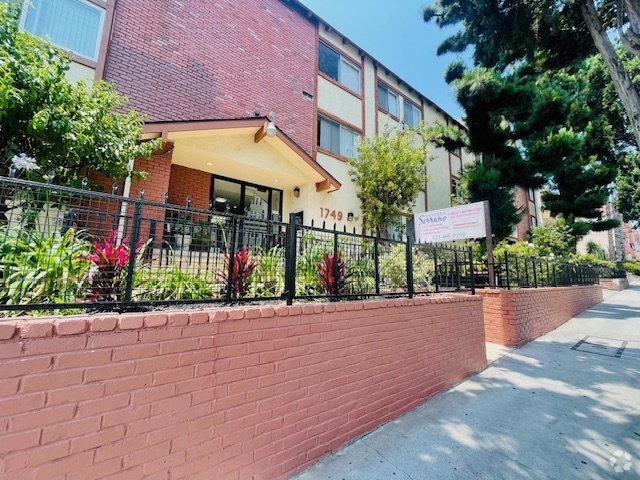Managing property leases effectively is essential for property owners and managers to ensure smooth operations, maximize profits, and maintain tenant satisfaction. Whether you’re new to property management or looking to refine your skills, this guide will provide you with practical tips for managing property leases efficiently.
1. Understand Local Laws and Regulations
Before diving into property management, it’s crucial to familiarize yourself with local, state, and federal laws and regulations regarding leasing and property management. This includes understanding tenant rights, fair housing laws, eviction procedures, and security deposit rules. Compliance with these laws not only helps avoid legal issues but also ensures fair and ethical treatment of tenants.
2. Create a Comprehensive Lease Agreement
A well-drafted lease agreement is the cornerstone of effective property management. Your lease agreement should be clear, detailed, and cover all essential aspects of the rental arrangement, including:
- Lease Term: Specify the duration of the lease, whether it’s a fixed-term lease (e.g., one year) or a month-to-month rental.
- Rent Amount and Due Date: Clearly state the rent amount, due date, and accepted payment methods.
- Security Deposit: Outline the amount, conditions for its return, and any deductions that may be made.
- Maintenance Responsibilities: Define the responsibilities of both the landlord and tenant for property maintenance and repairs.
- Rules and Regulations: Include any rules related to property use, such as noise restrictions, pet policies, and alterations.
3. Screen Tenants Thoroughly
Selecting the right tenants is crucial for minimizing problems and ensuring a positive rental experience. Implement a thorough screening process that includes:
- Background Checks: Verify the applicant’s criminal history, credit score, and rental history.
- Employment Verification: Confirm the tenant’s employment status and income to ensure they can afford the rent.
- References: Contact previous landlords and personal references to gauge the applicant’s reliability and character.
4. Maintain Open Communication
Effective communication is key to a successful landlord-tenant relationship. Establish clear channels for communication and be responsive to tenant inquiries and concerns. Regularly check in with tenants to address any issues and ensure they are satisfied with the property. Consider implementing a property management software that allows tenants to submit maintenance requests and pay rent online.
5. Implement a Maintenance and Repair Schedule
Regular maintenance and prompt repairs are vital for keeping your property in good condition and preventing major issues. Create a maintenance schedule that includes routine inspections, seasonal tasks (such as HVAC servicing and gutter cleaning), and a system for addressing emergency repairs. Ensure that tenants know how to report maintenance issues and respond to them in a timely manner.
6. Keep Accurate Records
Maintaining accurate records is essential for effective property management. Keep detailed records of:
- Lease Agreements: Store copies of all lease agreements and any amendments or addendums.
- Rent Payments: Track rent payments, including dates, amounts, and any late fees or missed payments.
- Maintenance Requests and Repairs: Document all maintenance requests, repairs performed, and associated costs.
- Communication: Record all communication with tenants, including notices, requests, and responses.
These records can be valuable for resolving disputes, preparing for tax season, and ensuring compliance with legal requirements.
7. Enforce Lease Terms Consistently
Consistency is crucial when enforcing lease terms. Apply rules and regulations uniformly to all tenants to avoid claims of discrimination or unfair treatment. If a tenant violates the lease agreement, address the issue promptly and follow the procedures outlined in the lease. Document all enforcement actions and communicate clearly with the tenant about any violations and required corrective measures.
8. Be Prepared for Evictions
While eviction should be a last resort, it’s important to be prepared for this possibility. Familiarize yourself with the eviction process in your area, including the legal grounds for eviction and the required procedures. Ensure that you follow all legal steps carefully to avoid delays or complications. If necessary, seek legal advice or assistance to navigate the eviction process.
9. Stay Informed About Market Trends
Keeping up with market trends can help you make informed decisions about your rental properties. Stay updated on local rental market conditions, including average rent rates, property values, and vacancy rates. This information can help you set competitive rent prices, make strategic improvements to your properties, and attract high-quality tenants. Want to find out more about the Emerald Of Katong Price? Please take a moment to visit their page for further info.

10. Invest in Property Management Software
Property management software can streamline many aspects of property management, making it easier to handle leases, track payments, and manage maintenance requests. Look for software that offers features such as:
- Online Rent Collection: Allow tenants to pay rent electronically and set up automatic payment reminders.
- Maintenance Tracking: Enable tenants to submit maintenance requests and track their status.
- Tenant Communication: Provide a platform for communicating with tenants and sending important notices.
- Financial Reporting: Generate financial reports to monitor income, expenses, and profitability.
11. Foster Positive Tenant Relationships
Building positive relationships with your tenants can lead to longer lease terms, fewer vacancies, and a more pleasant rental experience. Show appreciation for good tenants through occasional gestures, such as small gifts or discounts on rent for timely payments. Address any issues or concerns promptly and professionally to maintain a positive and respectful relationship.
12. Review and Update Lease Terms Regularly
Regularly review and update your lease agreements to reflect any changes in laws, market conditions, or property policies. Ensure that your lease terms remain clear, relevant, and legally compliant. Consider consulting with a legal professional or property management expert to ensure that your lease agreements are up-to-date and comprehensive.
Conclusion
Effective property lease management requires a combination of legal knowledge, organizational skills, and interpersonal communication. By understanding local laws, creating detailed lease agreements, screening tenants thoroughly, and maintaining open communication, you can manage your property leases successfully and create a positive rental experience for both you and your tenants. Remember that staying informed about market trends, investing in property management software, and fostering positive tenant relationships are key components of a successful property management strategy.

